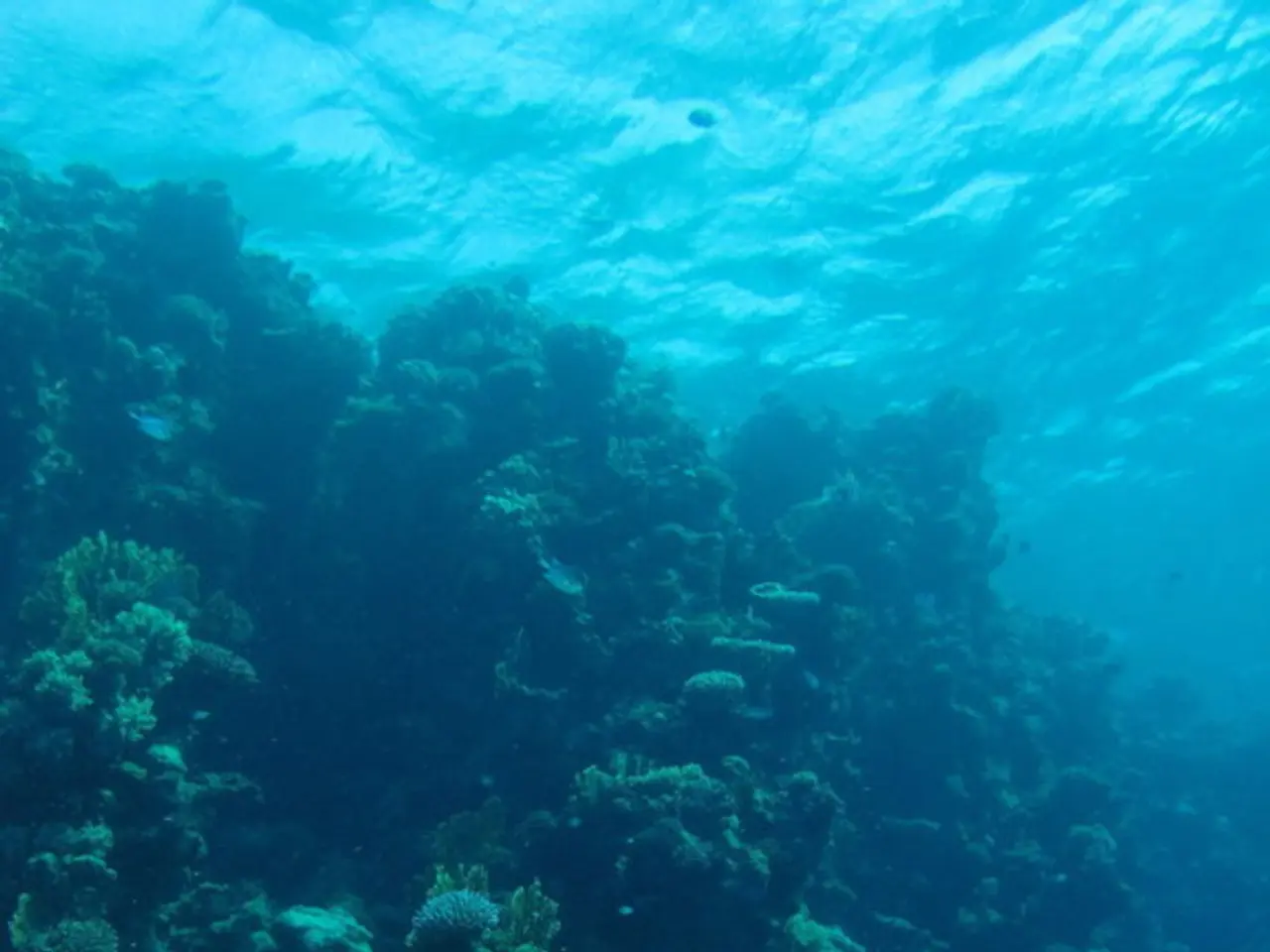Algae serve as a beacon of optimism according to UN ocean advisor, Vincent Doumeizel.
In a world where we are constantly seeking new sources of nutrients and sustainable food, seaweed has emerged as a promising treasure. Vincent Doumeizel, the oceans advisor for the United Nations Global Compact, refers to seaweed as "the foundation of all life" and "the future of humanity."
During a trip to Japan in 2015, Doumeizel delved into the world of seaweed, leading him to author the graphic novel "The Seaweed Revolution," published by Futuropolis editions in June for 21 euros. The book explores the potential benefits of seaweed and its role in our diets and the environment.
There are approximately 12,500 species of seaweed on our planet, and four of them – nori, dulse, sea lettuce, and kombu – share many nutritional properties, benefits, and uses but also have unique characteristics.
Nutritional Content
All these seaweeds are rich in proteins, dietary fiber, vitamins (A, B-complex, C, and sometimes B12), and minerals such as iodine, calcium, magnesium, potassium, and trace elements like zinc and selenium.
For instance, nori contains amino acids like arginine and taurine, which support liver and cardiovascular health. Brown seaweeds like kombu contain fucoxanthin, a carotenoid with metabolic benefits such as fat oxidation and energy production, and may have anti-carcinogenic properties. Dulse has phenolic acids and mycosporine-like amino acids with potential antioxidant and anticancer activity. Sea lettuce (Ulva lactuca) is a green seaweed with high calcium and vitamin content.
Unique Compounds
Each seaweed species has its unique compounds that contribute to their health properties. For example, brown seaweeds like kombu contain fucoxanthin, a carotenoid with metabolic benefits such as fat oxidation and energy production, and may have anti-carcinogenic properties. Dulse has phenolic acids and mycosporine-like amino acids with potential antioxidant and anticancer activity.
Benefits
Seaweeds offer numerous health benefits. They are a plant-based source of essential fatty acids like EPA (eicosapentaenoic acid) and DHA (docosahexaenoic acid). They may support cardiovascular, liver, skin, digestive, and metabolic health via their bioactive compounds. For example, nori's taurine supports cardiovascular function, kombu’s fucoxanthin helps regulate metabolism, and wakame (a related brown seaweed) is traditionally used to detoxify and support blood health.
Some seaweed components like fucoidans (in brown seaweeds) and phlorotannins have been shown in lab studies to exhibit anticancer activities. Seaweed is also a significant iodine source, which helps support thyroid function, but requires moderation due to potential excess intake.
Uses
Seaweeds are not just beneficial for human health but are also widely utilized in culinary applications. Nori, for instance, is widely used for wrapping sushi and maki; it is also consumed as sheets, snacks, or garnishes (e.g., furikake). Dulse is eaten as a snack, added to soups and salads, or used as seasoning. Sea lettuce is used fresh or dried in salads, soups, and as garnish. Kombu is a key ingredient in making dashi broth, the base of Japanese miso soup, thanks to its rich umami flavor. It is also used in stews and pickled preparations.
In addition to culinary uses, seaweeds can be added in small amounts to pet foods for nutritional benefits. They have also been used in traditional medicine, especially in Asian cultures, for detoxification and supporting reproductive and digestive health.
In summary, nori, dulse, sea lettuce, and kombu are nutrient-dense seaweeds rich in vitamins, minerals, fiber, and bioactive compounds. They offer health benefits related to cardiovascular support, metabolism, cancer prevention, and thyroid function, and are widely utilized in culinary applications from sushi to soups, as well as traditional medicinal contexts.
- Science illustrates the remarkable nutritional value of seaweeds, such as nori, dulse, sea lettuce, and kombu, in health-and-wellness, with benefits ranging from supporting cardiovascular function to potential cancer prevention.
- Environmental-science highlights the potential of seaweeds for environmental sustainability, as they thrive in oceans with minimal human intervention and provide a renewable source for health-and-wellness goods, offering solutions for both fitness-and-exercise and health-conscious consumers.




